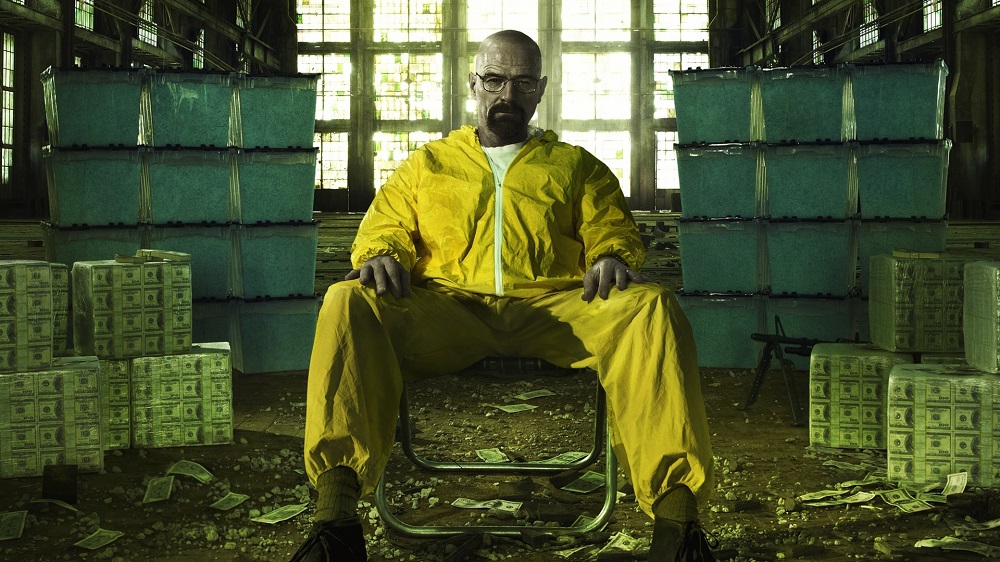Introduction:
“Breaking Bad,” the critically acclaimed television series created by Vince Gilligan, is a masterclass in storytelling that transcends the boundaries of conventional television. As audiences were gripped by the transformation of Walter White from a mild-mannered high school chemistry teacher to a ruthless drug kingpin, the series sparked conversations about morality, choices, and the consequences of one’s actions. In this extensive exploration, we delve into how “Breaking Bad” served as a moral compass, challenging viewers to confront ethical dilemmas and encouraging self-reflection on the concepts of good and evil.
1. The Complexity of Morality:
“Breaking Bad” shattered the traditional dichotomy of good and evil by presenting characters with multifaceted moral dimensions. Walter White, brilliantly portrayed by Bryan Cranston, evolves from a sympathetic protagonist to a morally ambiguous figure. The show forces viewers to question their own understanding of morality, challenging the notion that individuals can be neatly categorized as “good” or “bad.”
2. The Gray Areas of Ethical Decision-Making:
Walter White’s descent into the world of methamphetamine production is not a straightforward moral decline but rather a series of complex decisions. Viewers are compelled to analyze the circumstances that led Walter to compromise his principles, blurring the lines between right and wrong. “Breaking Bad” illustrates that ethical choices are often influenced by external factors, making morality a nuanced and subjective concept.
3. The Consequences of Unchecked Ambition:
Walter White’s journey is a cautionary tale about the dangers of unbridled ambition. Driven by a desire to secure his family’s financial future, Walter’s initial intentions are understandable, if not sympathetic. However, as the series unfolds, viewers witness the corrosive effects of unchecked ambition, showcasing how even noble aspirations can lead to destructive outcomes.
4. Moral Justifications and Rationalizations:
Throughout “Breaking Bad,” characters grapple with justifying their actions, revealing the intricate web of rationalizations that can accompany morally questionable decisions. Walter White often justifies his criminal actions by framing them as means to protect his family. The show prompts viewers to reflect on the thin line between rationalization and moral compromise.
5. The Humanization of Villains:
“Breaking Bad” humanizes its villains, showcasing the complexities of their lives and motivations. Characters like Gustavo Fring and Saul Goodman are more than one-dimensional antagonists; they possess backgrounds, fears, and vulnerabilities that challenge viewers’ preconceptions about morality. This nuanced portrayal emphasizes the show’s commitment to exploring the humanity within every character, regardless of their moral standing.
6. The Impact of Personal Accountability:
Walter White’s transformation prompts viewers to confront the idea of personal accountability. As the consequences of his actions unfold, the series highlights the importance of acknowledging one’s responsibility for the choices made. This theme resonates beyond the fictional world of “Breaking Bad,” urging viewers to consider the implications of their decisions in their own lives.
7. Redemption and the Possibility of Change:
“Breaking Bad” delves into the concept of redemption, challenging the notion that individuals are irreversibly defined by their past actions. Characters like Jesse Pinkman and even Walter White himself grapple with the possibility of redemption, showcasing that moral evolution is a complex and ongoing process. This theme encourages viewers to reflect on the transformative power of change and the potential for redemption in their own lives.
8. Ethical Dilemmas and Tough Choices:
The series consistently presents characters with morally challenging situations, forcing them—and by extension, the audience—to confront ethical dilemmas. From decisions regarding life and death to questions of loyalty and betrayal, “Breaking Bad” prompts viewers to consider what they would do in similar circumstances, fostering a deeper understanding of their own moral compass.
9. The Societal Impact of Unethical Choices:
“Breaking Bad” extends its exploration of morality beyond individual characters to examine the societal impact of unethical choices. The drug trade depicted in the series has far-reaching consequences that affect communities, families, and individuals. This broader perspective prompts viewers to consider the societal implications of personal morality and the interconnectedness of ethical decisions.
10. The Impermanence of Moral Certainty:
In the world of “Breaking Bad,” moral certainty is a fleeting and elusive concept. Characters continually grapple with shifting ethical landscapes, challenging viewers to embrace the impermanence of moral absolutes. The show underscores the fluid nature of morality and the need for continual self-examination.
Conclusion:
“Breaking Bad” is more than a television series; it’s a moral odyssey that challenges viewers to confront their own beliefs, biases, and ethical frameworks. By presenting a narrative rich in complexity, the show prompts self-reflection on the nature of morality, the consequences of choices, and the potential for redemption. As Walter White’s journey unfolds, “Breaking Bad” serves as a mirror, inviting viewers to question their own principles, judgments, and the shades of gray that exist within the human experience. It stands as a testament to the power of storytelling to spark conversations, challenge perspectives, and leave a lasting imprint on the collective consciousness.
